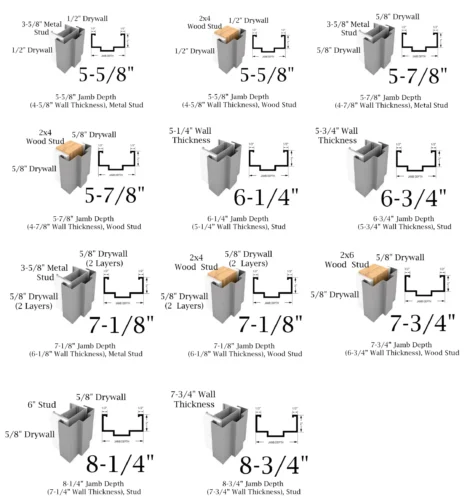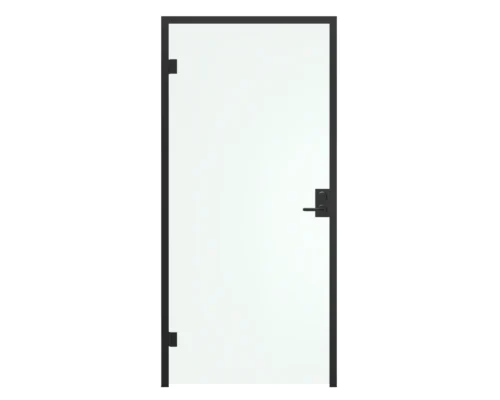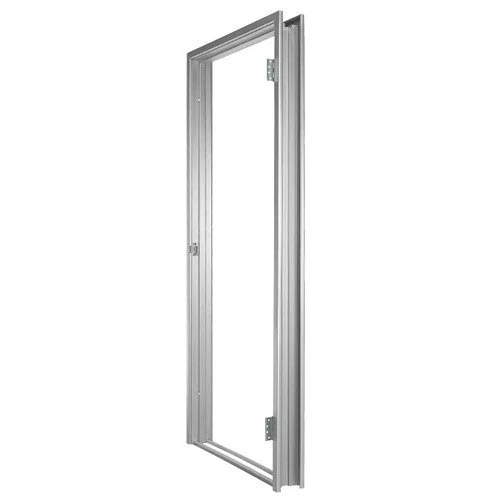| Category | Thickness Range | Best For |
| Residential, Bifold, and Interior Doors | 30mm-40mm | Sleek, lightweight construction |
| Sliding, Swing, and Entry Doors | 40mm-50mm | Mid-range strength for regular use |
| Garage and Fire-Rated Doors | 50mm-60mm | Heavy-duty doors requiring extra strength and safety compliance |
Aluminum door frames are essential for both residential and commercial spaces, offering durability, versatility, and modern appeal.
One key factor that determines their performance is frame thickness.
From enhancing security to improving energy efficiency and aesthetics, the right thickness can make all the difference.

Thin frames are perfect for sleek, minimalist designs, while thicker frames provide superior strength for heavy-duty applications.
In this article, we’ll explore standard aluminum frame thickness ranges, compare thin and thick frames, and help you choose the best option for your specific needs.
Let’s dive into the details!
Standard Aluminum Door Frame Thickness (30mm–60mm Explained)

When it comes to aluminum door frames, thickness plays a vital role in ensuring durability, functionality, and performance.
Typically, aluminum door frames are available in three common thickness ranges, each suited for specific door types and applications:
30mm-40mm: This range is ideal for residential, bifold, and interior doors, where the focus is on lightweight construction and sleek aesthetics. These thinner frames are perfect for areas that don’t require heavy-duty performance but still provide durability and style.
40mm-50mm: For sliding, swing, and entry doors, this mid-range thickness strikes a balance between strength and design. These frames are strong enough to handle regular use and provide better insulation and security, making them suitable for exterior doors.
50mm-60mm: The thickest frames are typically reserved for garage and fire-rated doors, where additional strength, durability, and compliance with safety standards are crucial. These robust frames can support heavier doors and withstand extreme conditions.
It’s important to follow regional and industry standards when selecting aluminum door frame thickness to ensure safety, energy efficiency, and long-term reliability.
Whether you’re upgrading your home or working on a commercial project, choosing the right frame thickness is essential for achieving both functionality and aesthetics.
Thin vs. Thick Aluminum Door Frames: Which Is Better?
When choosing an aluminum door frame, deciding between thin and thick frames depends on your needs.
Let’s break it down:
Thin Aluminum Door Frames (30mm-40mm)

Thin aluminum door frames are perfect for those prioritizing sleek, modern designs.
They provide a minimalist aesthetic, allowing for larger glass areas, maximizing natural light, and giving a clean, contemporary look.
These frames are also cost-effective, making them a great choice for low-impact applications like interior doors or residential bifold doors where strength and insulation are less critical.
If you’re aiming for a stylish and budget-friendly option, thin frames are the way to go.
Thick Aluminum Door Frames (50mm-60mm)

For heavy-duty doors and challenging conditions, thick frames are the better option. Their greater strength and durability make them ideal for exterior doors, such as entry or garage doors, that face frequent use or harsh weather.
Thick frames also excel in high-security environments, as they can accommodate advanced locking systems and resist tampering.
Plus, their superior insulation capabilities make them energy-efficient and soundproof, ensuring comfort and peace.
Whether you’re drawn to the sleekness of thin frames or the resilience of thick ones, choosing the right frame ensures your door performs well while enhancing your space’s overall appeal.
Conclusion

The thickness of an aluminum door frame plays a crucial role in its durability, aesthetics, and functionality.
Whether opting for thin frames for modern interiors or thick frames for heavy-duty applications, selecting the right thickness ensures your doors meet performance and design needs.
As a professional aluminum door manufacturer, we ensure every frame meets strict ASTM and EN standards for long-term reliability and architectural performance.
Ready to upgrade your doors?
Consult experts to choose the perfect aluminum frame thickness for your home or project. Whether prioritizing aesthetics or durability, finding the right frame ensures long-lasting performance and style. Contact us today for personalized guidance!
FAQs About Aluminum Door Frame Thickness
What is the thickness of an aluminum door frame?
High-quality aluminum door frames typically have a thickness of 1mm or more to ensure durability and performance. Poor-quality frames, on the other hand, often have a thickness ranging between 0.6mm to 0.8mm, which compromises their structural integrity and longevity.
How thick are exterior door frames?
Standard exterior door frames are generally around 1 ¾ inches to 2 inches thick. This thickness aligns with most hardware specifications, including locks and hinges, ensuring compatibility with standard exterior doors.
What is the standard thickness of aluminum?
Aluminum is commonly available in thicknesses ranging from 0.2mm to 6.5mm. Anything below 0.2mm is considered foil, while aluminum thicker than 6.5mm is typically classified as plate.
How thick is an aluminum can?
Aluminum cans, such as soda cans, are 0.04 inches thick. These cans are made with lightweight aluminum to maintain durability while minimizing material use.

![Chart of drywall frame jamb depths for various wall thicknesses - How Thick is an Aluminum Door Frame? [2026] - APRO Chart of drywall frame jamb depths for various wall thicknesses](https://aprowin.com/wp-content/uploads/2025/01/Chart-of-drywall-frame-jamb-depths-for-various-wall-thicknesses-scaled-e1735968578325-1924x2048.webp)







